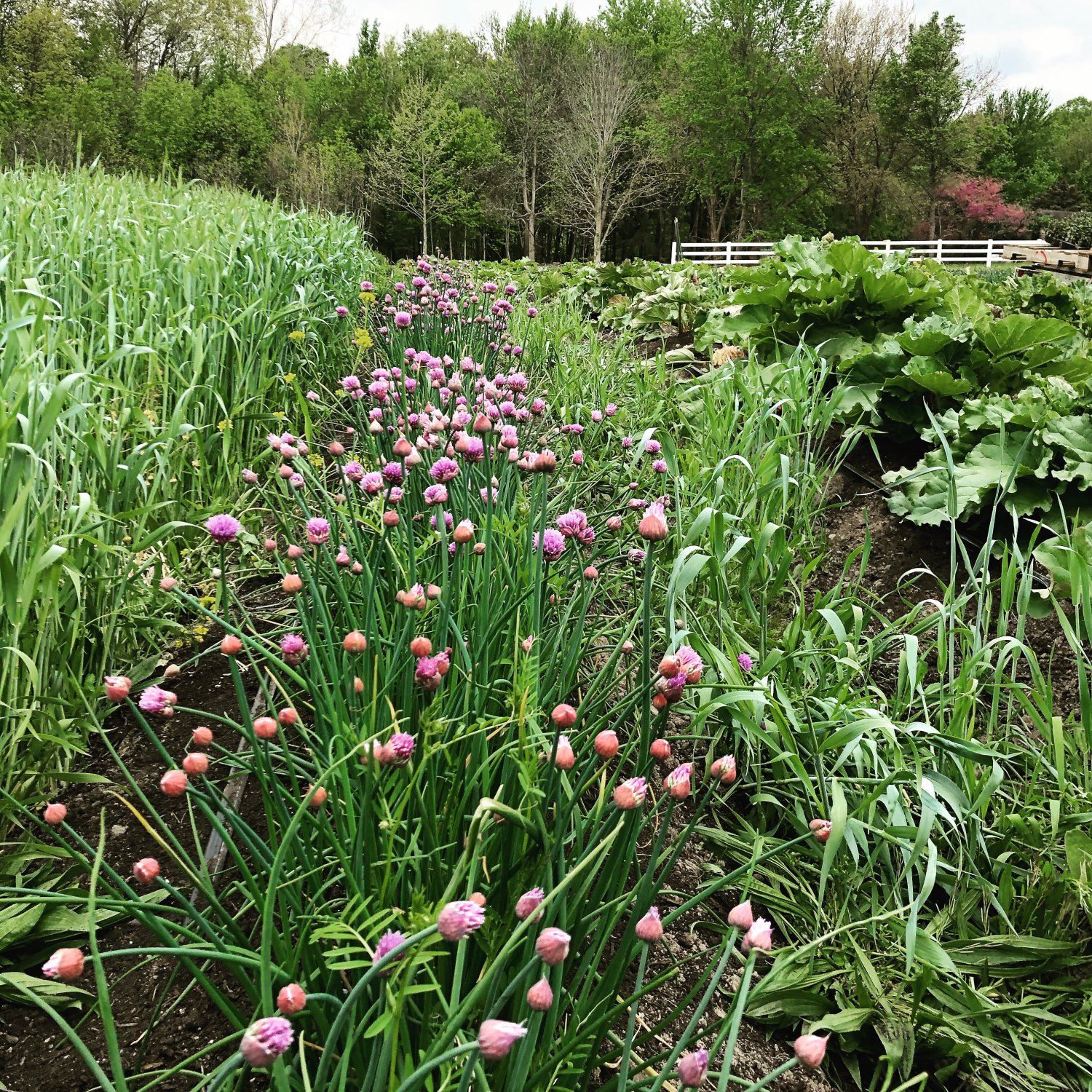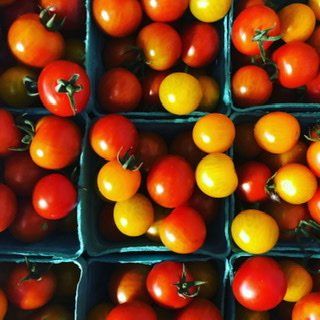Sometimes things in life don't go quite as smoothly as we would like and the last couple of weeks on the farm have gone just that way.
Roughly 3 weeks ago, we noticed some damage from what we suspected to be herbicide drift on one of our properties where we grow a large portion of our brassica crops (including our wholesale kale and chard) along with some more of our summer vegetables. At that time, the plants were really just babies, having been newly transplanted, but showed up quite bad on some overwintered spinach. The drift appeared to have come through the fence row dividing our plot from the neighbors corn field, which is 50 feet of woods. Drift appeared to show up on plants up to about 3/8 of a mile from the target.
We immediately called both the State of Michigan inspector as well as our Organic certifier to make them aware of the situation. Within a few days the state inspector got back to us to let us know that the tests came back to confirm that drift was consistent with the lab tests for saflufenacil, a contact herbicide used as a preplant by the neighbor in a 3 way tank mix with other herbicides.
Meanwhile, our Organic certifier did a battery of lab tests on the product and found .01 parts per million of Atrazine (a herbicide) and .01 parts per million of Phosmet (a pesticide). We were appalled to find out that the product that caused the damage (saflufenacil) wasn't even in their tests of 170 chemicals! We just received their test results a couple days ago.
So, we do not know where the Atrazine is coming from (the State Inspector is doing more investigation) but it is possible that it could just be present in the soil at those concentrations since it is a very persistent chemical. We do think that the Phosmet likely came from the neighboring fruit trees. In order for this chemical to have made it onto our field and end up on every sample, it would have had to drift through 2 rows of non pruned full size apple trees, across a road, and travel uphill for another 200+ feet to finally rest on our spinach.
Now you know an abridged version of the story and the conclusion to all this is that we are not allowed to represent the product that had been planted at the time of the drift as Organic due to the Phosmet chemical, even though the tested volume of contamination was the lowest possible amount that lab could find. There is some interpretation of the rule regarding this chemical which could reverse this decision and we are appealing it to the National Organic Program for further review.
So what does this mean for you? You will notice that we will be changing our marketing material to reflect that our farm is no longer entirely certified organic and we will be noting which products fall under this "conventional" designation with the letter C before the product name in your shares. Of course, our commitment to growing everything organically remains and we would NEVER knowingly put a synthetic pesticide or fertilizer on the food Wild Coyote Farm produces. All of our land and crops remain under organic management.
We are very sorry to have to report this to you. If you are unhappy with your options as you select your share items, you can put the share on hold until we have more items that are unaffected by this very unfortunate turn of events.
Unfortunately, it is very difficult to avoid non-target chemicals in today's world. Herbicides have been identified most everywhere, including in ground water, surface water, and human urine. So why choose Organic? These chemicals are killing us, our microbiome, and our planet's microbiome. Scientists can now identify whether or not an individual is healthy by looking at what species exist in them and comparing them to that of a healthy soil assay. Agricultural chemicals significantly limit the variety of microbes in the soil as well as within us, which doesn't seem all that significant until we realize that there are 10 microbial cells for every single human cell in our bodies.
Thank you for reading this important message. We will update you once we have more information available. If you have any questions or need assistance, please contact us. Also, if you are a lawyer with experience in this area, we’d appreciate your advice.
Your Farmers,
Paul & Shelli




